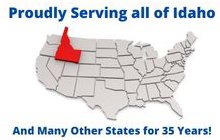Reverse mortgages can be complicated, and it’s simple to fall into a negative scenario. Before entering into one, you must exercise caution and verify that you comprehend both the advantages and disadvantages. A reverse mortgage is an option for consumers who have paid off the majority or all of their home’s loan and want to access some of the equity. They are often granted to persons over the age of 62 and are only available for primary residences. The funds are provided in the form of a lump sum or a line of credit, which can be utilized as needed. The balance does not have to be paid off until the homeowner either moves out or passes. If the homeowner moves out, they have one year to complete the debt. If they die, the estate or heirs will manage the loan.
The Positive Aspects of a Reverse Mortgage
Reverse mortgages provide homeowners the option to remain in their cherished house instead of being forced to relocate or downsize when they don’t want to. The loan’s proceeds can be utilized to settle current mortgages and release money for a more comfortable lifestyle. The fact that payments are deferred until after the homeowner moves out or dies reduces stress throughout a person’s formative years. The IRS does not impose taxes on reverse mortgage proceeds. Furthermore, only the heirs of the estate are exempt from paying the shortfall if the home’s value drops below the reverse mortgage sum. The fact that reverse mortgages do not have income or credit limitations means that any homeowner with enough equity in their home can access it, which is another fantastic perk.
A Reverse Mortgage and Its Drawbacks
Mortgage insurance and origination fees are two extra expenses associated with reverse mortgages. Since a large number of interest rates are variable, they will eventually rise. Additionally, rather than decreasing the loan debt, interest is accumulated, and interest payments are not tax deductible. This profit is decreased because you’re borrowing equity, which lowers the value of your estate. In order to preserve the home’s resale value, lenders may also impose stringent maintenance requirements. If the terms of the reverse mortgage are not met, a default or foreclosure may occur. The money from the reverse mortgage may have an effect on a person’s eligibility for Medicaid. Lastly, picking someone you can trust is essential because there are a lot of con artists out there who prey on the elderly.
Consider alternatives to reverse mortgages if a homeowner intends to vacate the premises within a few years, wishes to leave the property as an inheritance to their family, has tenants or relatives residing in the residence, or will have difficulty paying the mortgage. Perhaps downsizing, credit lines, or refinancing might be a better option. InterWest Mortgage provides candid guidance regarding your available options.




